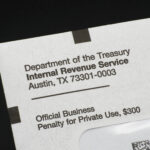
Broker-dealer deposits regulations under the Securities Exchange Act
The financial landscape can be unpredictable, and recent news of several large U.S. bank failures highlighted the potential financial risks to bank depositors.
For broker-dealers, these bank failures have generated questions regarding treatment of deposits held with failed banks, as mandated by the Securities and Exchange Commission Act of 1934 (“SEA”) Rule 15c3-1.
The regulation was established by the Securities and Exchange Commission (“SEC”) to ensure that broker-dealers maintain adequate net capital levels to protect customers and overall integrity of the securities market. Net capital represents the excess of a broker-dealer’s liquid assets over its liabilities. This rule establishes the minimum net capital requirements that broker-dealers must meet to continue operating. When a bank fails, it can have a significant impact on the net capital of broker-dealers. Broker-dealers often hold cash and securities in custodial accounts with banks, and if those banks fail, the broker-dealers may face a decrease in their net capital due to the loss of these assets. Consequently, it becomes crucial to assess the treatment of deposits held by broker-dealers under such circumstances.
Recent FINRA bank deposit guidance for broker-dealers
Given Rule 15c3-1, such concerns from broker-dealers include how deposits over the Federal Deposit Insurance Corporation (“FDIC”) are expected to be treated (allowable or non-allowable), whether failed banks are still considered appropriate for Propriety Accounts of Broker-Dealers (“PAB”), and to what extent of due diligence are broker-dealers required to perform in keeping PAB accounts. The Financial Industry Regulatory Authority (“FINRA”) provided guidance to the industry by issuing regulatory notice 23-04. FINRA’s guidance states:
- “All bank deposits at Silicon Valley Bank (“SVB”) and Signature Bank (“Signature”) may continue to be treated as allowable assets for net capital purposes.
- Balances in customer and PAB reserve bank accounts at SVB and Signature may continue to be treated as qualified reserve bank account deposits for purposes of SEA Rule 15c3-3(e), the customer protection, reserves and custody of securities rule.
- Any withdrawals of funds from accounts held at SVB and Signature must comply with the requirements of all applicable rules, e.g., SEA Rule 15c3-1(e) and SEA Rule 15c3-3(e)(1).”
Next steps for broker-dealers impacted by bank failures
The FINRA’s notice above is specifically for the SVB and Signature bank failures, however, there have been a multitude of additional failures in recent months. Broker-dealers that have been affected by recent bank failures or have deposits in banks facing concerning issues should engage in discussions with their auditors regarding the financial reporting implications. For those impacted by bank failures, management should consider expanded disclosures in annual reports; at the very least, in the form of expanded footnote disclosures.
The Keiter Financial Services industry team closely monitors new and changing regulations that impact financial services firms, including broker-dealers. Questions on this topic or other broker-dealer regulations? Contact your Keiter Opportunity Advisor | Email | Call: 804.747.0000.
Sources
About the Author
The information contained within this article is provided for informational purposes only and is current as of the date published. Online readers are advised not to act upon this information without seeking the service of a professional accountant, as this article is not a substitute for obtaining accounting, tax, or financial advice from a professional accountant.



